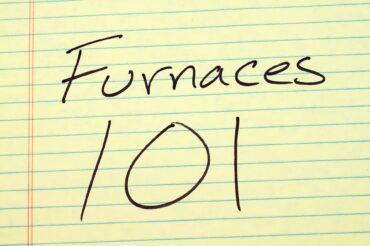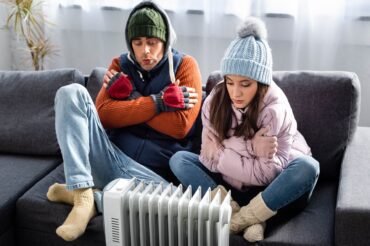Your furnace wasn’t built to last forever. The average lifespan of this heating marvel is between 15 and 20 years—more if the unit is a newer model and has been well looked after, and less if it’s been neglected, or is an older model. If you live in your home long enough, the time will come when your furnace needs replacing, and you’ll be faced with a number of decisions, including whether to install a gas or electric furnace, to take its place. Read on to learn the pros and cons of each, so you can choose what’s best for your home.
When you need furnace installation, contact Top Notch Heating, Cooling & Plumbing for a fast response from one of our expert heating repair technician who can help you determine the best heating solution for your home.
Electric Furnace
Though natural gas is the most commonly used, home heating fuel type in the U.S., it’s neither ideal, nor available, for every application. An electric furnace is a viable alternative to a gas powered unit, and the low purchase price makes it even more attractive. Pros and cons include:
Advantages of an Electric Furnace
- Initial cost. The technology behind an electric furnace is more simplistic than its gas counterpart, with fewer, less expensive components. Because of this, homeowners can expect to pay between 30 and 50 percent less on an electric model, than they would on a comparable gas furnace.
- Easy to install. Their compact size, and the absence of ventilation, and gas lines, make installation faster and easier.
- Quiet. Noises typically associated with starting, stopping and operation are minimal.
- Durable. The simplistic design makes for a more durable, longer lasting furnace than a gas model.
- Clean operation. Since no byproducts are produced during heating, your family is safe from the dangers of carbon monoxide exposure.
- Less maintenance. Maintenance is straightforward, and many issues can be easily resolved by the homeowner.
Cons of an Electric Furnace
- Higher monthly bill. Depending on the type, and model that you choose, and the cost of fuel in your area, an electric furnace can be more costly to operate.
- Lower efficiency. While electric heating technology is beginning to catch up, most electric furnaces on the market today are less efficient than gas furnaces, due in part to how much energy they consume while heating to the desired temperature.
Gas Furnace
In areas of the country where temperatures often fall below freezing, a gas furnace is the more popular choice, as they can heat to higher temperatures, and do so quickly and efficiently. Pros and cons include:
Pros of a Gas Furnace
- Lower operating cost. The cost of natural gas has decreased significantly, and is a cheaper source of energy than electricity.
- Higher efficiency. Newer models operate at close to 98 percent efficiency, heat your home faster, and use less energy.
- Greater comfort. Some prefer the feel of gas heating, as it also helps to control humidity levels.
Disadvantages of a Gas Furnace
- Increased maintenance. The complexity and safety concerns with a gas furnace require annual maintenance and service, best performed by a professional.
- Safety concerns. Venting issues, faulty ductwork, or a cracked heat exchanger can pose a serious hazard to the occupants of the home.
Contact Top Notch for Furnace Installation in Kansas City
At Top Notch, we’ve been installing furnaces in Lenexa and around the Kansas City area since 1974. If you want reliable furnace installation that will run efficiently for years, call Top Notch Heating, Cooling & Plumbing today! Our HVAC experts will ensure a professional installation of your new furnace that will allow it to warm your Lenexa home efficiently for years to come.
If you live in Lenexa or the Kansas City metropolitan area (including Olathe, Overland Park, and Shawnee), contact Top Notch online to schedule your furnace installation before the winter months arrive in Kansas. Don’t wait until it’s too late—or too cold—before you realize you need a new furnace installed.








